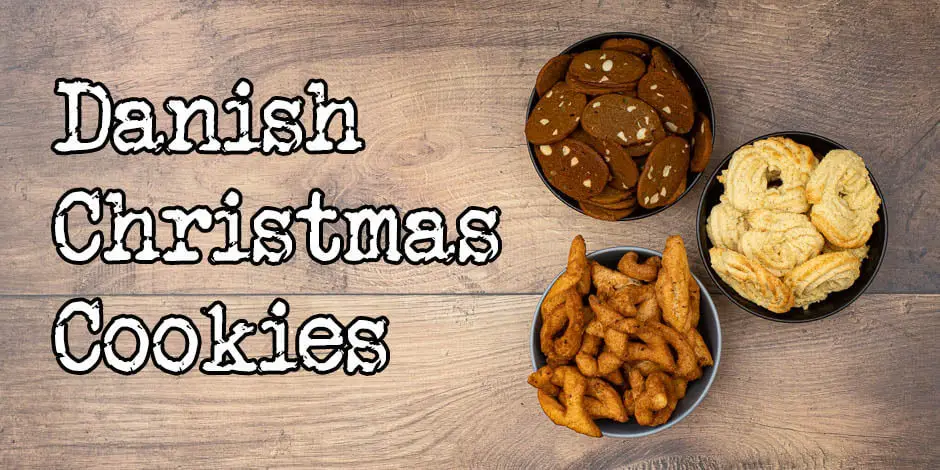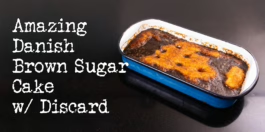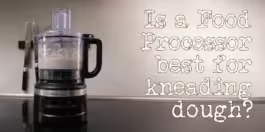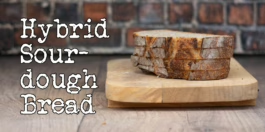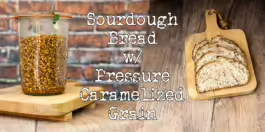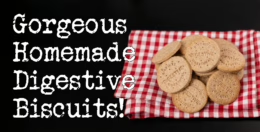Christmas is just around the corner. Every country, town, and family has its traditions. In Denmark, we have many traditions, and we agree on what cookies we like to eat for Christmas. Brunkager, klejner, and vaniljekranse are the most popular cookies for Christmas. These are my Danish Christmas cookies recipes.
I recently covered a German Christmas tradition, but the time has come to my native Denmark this time.
We have many different cookies we make for Christmas, but these three: brunkager, klejner, and vanilljekranse, are the most popular and beloved ones.
If you are just here for the recipe, you can press the button underneath to be automagically transported to the recipe:
Jump to Recipe Jump to VideoThe history of Danish Christmas Cookies
Brunkager
During the middle ages, spices were used as a sort of a preservative, and the brunkage is a prime example of that.
Earlier incarnations of these cookies were called peberkager (“pepper cookies”) because they contained ground black pepper. We still have a Christmas cookie with black pepper that’s called pebernødder (“pepper nuts”).
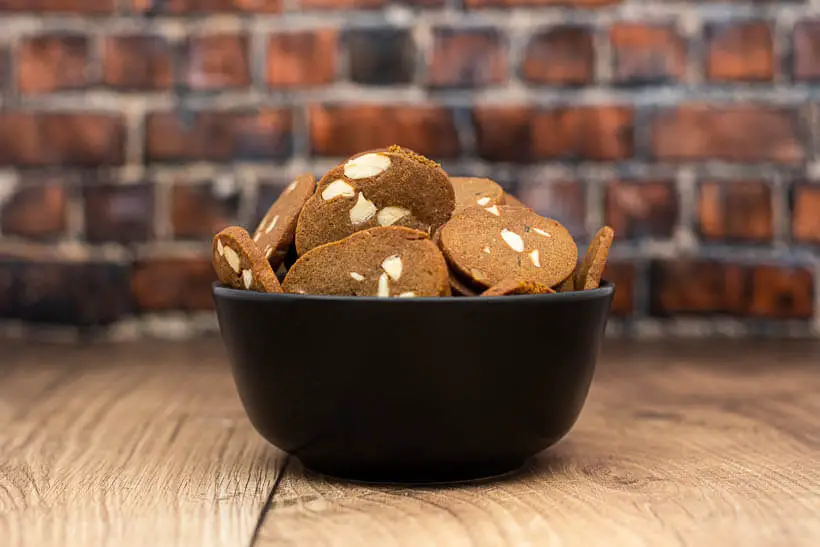
They still eat pepper cakes for Christmas in Sweden, but the Danish cookie diverged.
The brunkage became a Christmas tradition around the middle 1800s. Stoves became more common, and making cookies at home was possible.
Klejner
The klejne is an ancient cookie. It’s from the Middle Ages when pots and fats were the way to prepare baked goods.
Back in the Middle Ages, the bakers added a wide array of spices to the klejner, but more recently, recipes have been switching between cardamom and cinnamon.
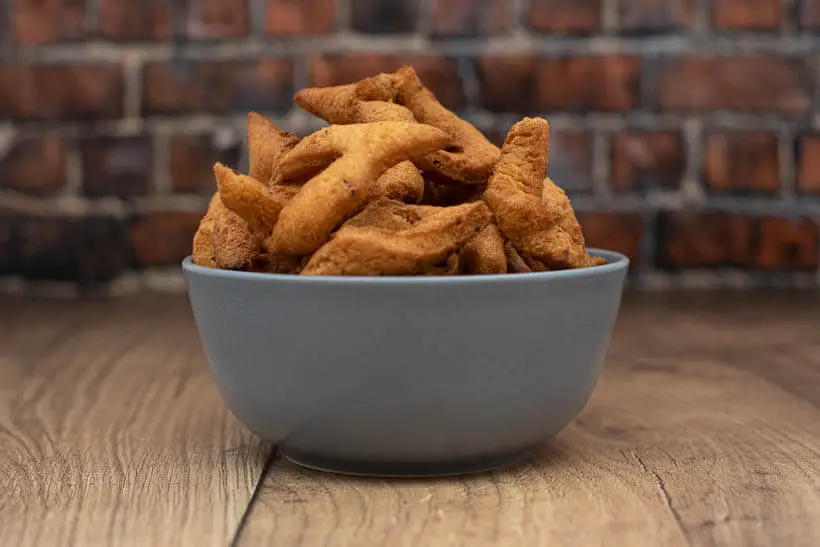
One common thing in the more recent variations of klejner is lemon. In the Danish recipes, we use lemon zest. The Norwegians have a klejne that is covered in a lemon glaze.
What makes the klejne incredibly iconic is the shape and the twisting.
Vaniljekranse
Vanilla wreaths are a more recent cookie, having their beginnings in the middle 1800s.
Many people shape them using a meat grinder using a unique star-shaped attachment. Another way to shape them is to pipe them using a star-shaped nozzle.

The ingredients for these Danish Christmas cookies recipes
To make these cookies, you should use the highest quality ingredients.
You should be using cake flour for the flour, which will make for a more tender and brittle texture in all of these cookies.
As for butter, use butter made from milk from grass-fed cows. It’ll make a difference in the taste.
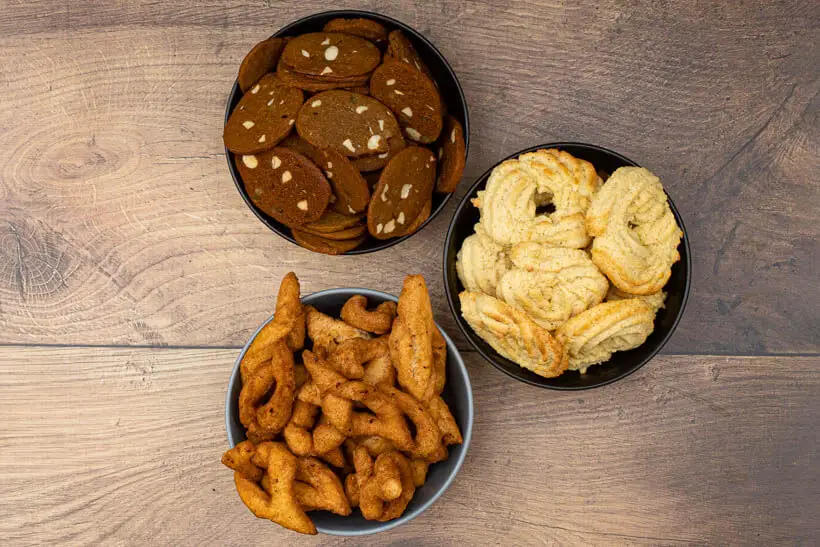
Please shape these recipes for Danish Christmas cookies on social media
These are my recipes for Danish Christmas cookies. If you like the recipes, please consider sharing them with like-minded cookie lovers on social media.
If you make it and post it on Instagram, please tag me as @foodgeek.dk so I can see it. That would make me very happy.
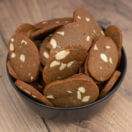
Brunkager (Brown Cookies)
Ingredients
- 125 g butter
- 125 g dark brown sugar
- 70 g corn syrup golden syrup in the UK
- 250 g cake flour
- 2 teaspoon ground cinnamon
- ½ teaspoon ground all-spice
- 1 teaspoon powdered ginger
- ½ teaspoon ground cloves
- 75 g almonds
- 25 g candied cedrat candied orange peel
- 1 teaspoon possasium bicarbonate
Instructions
Prepare wet ingredients
- Melt 125g or ½ cup of butter, 125g or ½ cup of packed brown sugar and 70g or ⅕ cup of corn or golden syrup.
- I use my microwave on low.
Prepare dry ingredients
- I the meantime add the following ingredients to a bowl: 250g or 2 cups of cake flour, 2 teaspoons of ground cinnamon, ½ teaspoon of ground all-spice, 1 teaspoon of powdered ginger, ½ teaspoon of ground cloves, and 75g or ½ cup roughly chopped almonds.
- Then add 25g candied cedrat peel.
- Mix it all up thoroughly.
Prepare leavener
- Then mix 1 teaspoon of potassium bicarbonate into 1 tablespoon of water.
- Grab the butter mixture from the microwave and mix it up. It shouldn’t be too warm at this point. Add the mixed levening.
Prepare dough
- Add the entire butter mixture to the flour mixture. Work the mixture together using a spatula.
- Then when it becomes too dry, dump it out on the kitchen counter and knead it until you have a smooth, somewhat sticky dough.
- Roll it into a log about the size of cookies you want. Then add it to a parchment paper and roll to cover it.
- Put the dough in the fridge for at least four hours.
Bake cookies
- When you are ready to bake, heat your oven to 175°C/350°F.
- Grab a parchment-lined baking sheet, a cutting board, and a sharp knife.
- Cut the dough into thin slices and put them on the baking sheet.
- When the oven is hot, add the sheet and bake for about 6 minutes.
- The cookies shouldn’t brown, but that can be hard to tell. Take them out and put them on a wire rack.
- Continue with the rest of the dough until you’ve baked them all.
- The cookies are soft when they come right out of the oven and won’t be crispy until they’ve cooled off.
Video
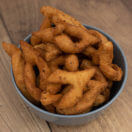
Klejner
Equipment
Ingredients
- 75 g butter
- ¼ tsp vanilla powder
- 1 tbsp lemon zest
- 3 spiseske whipping cream
- 90 g sugar
- 1 egg
- 1 tbsp lemon juice
- ½ tsp ammonium bicarbonate
- 275 g cake flour
- ½ tsp ground cardamom
- ¼ tsp table salt
Instructions
Prepare lemon
- Zest 1 lemon and chop it finely.
- Squeeze a ½ lemon into a small bowl.
Prepare butter mixture
- To a small bowl add: 75g or a ⅓ cup room temperature butter, ¼ teaspoon vanilla powder, the lemon zest, 3 tablespoons whipping cream, and 90g or ½ cup sugar
- Whip it up. After it’s pretty well whipped together, add 1 egg and mix it in.
Prepare leavener
- Then mix up one tablespoon of lemon juice with ammonium bicarbonate. It should foam.
- Add the leavening to the butter mixture. Mix it up.
Make dough
- To a small mixing bowl add: 275g or 2 cups cake flour, ¼ teaspoon ground cardamom, and ¼ teaspoon table salt. Mix it up.
- Then add the flour mixture to the butter mixture. Mix with a spatula until it comes together.
- Dump it on the counter and knead it until you have a cohesive dough.
- Put it in a ziplock bag and let it rest in the fridge for about an hour.
Shape klejner
- After resting, grab the dough from the fridge and roll it out into a rectangle.
- It should be pretty thin—about 2 mm, about ⅛ inch.
- Then cut them into rhombus shapes with a pastry wheel cutter. They should be about 3 cm by 8 cm and about 1 inch by 3 inches. Cut a hole in the middle of each rhombus.
- Pick one up and stretch the hole a little, then put one end through the hole and tug on it, so it becomes this little knot.
- Put them all on a parchment-lined baking sheet.
Cook klejner
- After they are all shaped, heat a pot of 1 liter or 4 cups of neutral-tasting oil. It should be 180°C/360°F. I used rapeseed, but you can use peanut, grapeseed, or canola.
- Add a couple of klejner at a time, and let them cook on both sides until they are golden brown.
- I can fit six klejner at a time in my pot and stagger the timing, so I have some that are halfway done when I add the next batch.
- Let them cool on a wire rack with kitchen paper underneath.
- They are great when they are still warm but good for a few days after making them.
Video
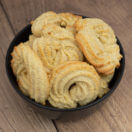
Vaniljekranse (Vanilla Wreaths)
Ingredients
- 1 vanilla pod
- 80 g sugar
- 75 g almond flour
- 100 g butter
- 1 egg
- 100 g cake flour
Instructions
- Heat your oven to 175°C/350°F.
- Cut the vanilla pod in half and scrape out the seeds.
- Add some sugar and mash it into the seeds to separate them.
- To a small mixing bowl add: the vanilla sugar, 80g or ½ cup sugar, 75g or ⅘ cup almond flour. Mix it up.
- Add 100g or ½ cup butter and mash it into the mixture with a spatula.
- When the batter comes together, add an egg. Mix the egg into the dough.
- When it’s mixed in add 100g or ⅘ cup cake flour. Mix until the flour has been dispersed.
Pipe vanilla wreaths
- Then grab a piping bag and fit a star-shaped piping nozzle.
- Pipe wreaths out onto a parchment-lined baking sheet.
Bake vanilla wreaths
- Add the sheet to the oven and bake for 8 to 10 minutes. The wreaths should be just golden brown on the edges.
- Grab them and let them cool completely on a wire rack.
- They won’t be crispy until they are cooled down completely.



